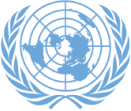Distinguished Co-Chairs,
I have the honor to speak on behalf of the fourteen (14) member States of the Caribbean Community (CARICOM). Let me first thank you, Co-Chairs, for convening this session of the IGN and for your hard and dedicated work in facilitating these intergovernmental negotiations on Security Council reform.
You have asked us to focus during this round of meetings on the remaining two clusters, namely, the size of an enlarged Council and its working methods and the relationship between the Council and the General Assembly.
CARICOM’s well-known position is one of support for an expansion in both the permanent and non-permanent categories. The Organization’s current membership cannot be equitably represented on the Council at its current size and configuration. Equitable representation for CARICOM means that all regions should be represented and that there should be a cross-regional balance. Currently some regions are underrepresented in both the permanent and non-permanent or elected categories, while others are unrepresented in the permanent category. We reiterate our support for Africa’s representation in the permanent category and note that our own region of Latin America and the Caribbean is also unrepresented in that category. Representation for us also means setting aside a non-permanent seat on a rotating basis for Small Island Developing States (SIDS). This is a proposal put forward by CARICOM and we have been encouraged by the support it has attracted thus far.
With regard to the working methods of the reformed Council, these will have to be adapted to the Council’s new size and configuration in a manner that ensures transparency, participation and accountability while maintaining the effectiveness of the Council. Formulas will have to be worked out to promote greater participation by non-permanent members in decision-making with a view to ensuring greater transparency. The system of rotation of the Presidency will also have to be tweaked so that non-permanent members can be assured of at least one term as President during their tenure. Non-permanent members, who are elected from the membership at large, bring different and fresh perspectives to the discussion of issues which can complement the perspectives of the permanent members. While the working methods of the Council derive from the Charter and the Provisional Rules of Procedure, their development over time has been based largely on practice, and the institutional memory of those practices resides, understandably, with the Permanent members. As part of our reflections, we may therefore wish to consider the role of the non-permanent members in shaping and codifying the working methods of the Council.
Turning to the relationship between the Council and the General Assembly, as we explore further ways to enhance the accountability of an enlarged Council to the membership of the Organization and to increase the transparency of the Council’s work in relation to the General Assembly, it may be useful to seek guidance from the Charter on the respective roles of the Council and the Assembly. Articles 10 to 12 of the Charter, under the section entitled “Functions and Powers” of the General Assembly, provide for the exercise by the Assembly of functions and powers that appear to be broader in scope than what we see in the current practice. Article 11 (2), for example, provides that the “General Assembly may discuss any questions relating to the maintenance of international peace and security brought before it by any Member of the United Nations,” subject to the provisions of Article 12. It may therefore be useful to explore a complementary role for the Assembly in the maintenance of international peace and security, especially given the emergence of new and unconventional threats to peace and security, such as the impacts of climate change.
Co-Chairs,
In your letter of 25th March, you also encouraged delegations to address the relationship and potential impact of the two clusters just mentioned with the other three clusters already considered. Let me under that rubric make the following observation.
CARICOM views the exercise in which we are engaged – intergovernmental negotiations on reform of the Security Council – as part of an urgent and broader effort to strengthen our rules-based system of international law and adapt it to the new contemporary realities and challenges. It is part of the effort to preserve the multilateral approach to addressing the global challenges with which we are confronted. A reformed and strengthened Security Council deriving its legitimacy and credibility from the representativeness of its membership and the functionality of its working methods is a critical underpinning of the system of international law. The urgency of the challenges facing our global community and hence the need for early reform make it imperative for us to enhance our engagements within the IGN so that there is greater clarity of positions. In that way, we can bridge our differences and achieve the convergence necessary to bring about the needed reform.
Co-Chairs,
CARICOM welcomes this opportunity to share our perspectives. We also welcome your assurance that the views expressed in this round will inform the outcome of the IGN process during the 73rd session.
I thank you.


